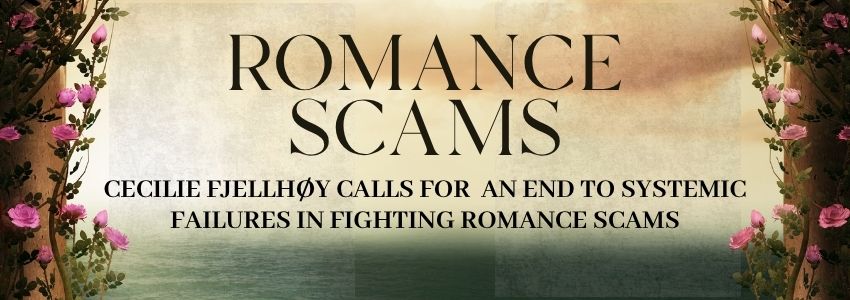
With technology fueling its rapid growth, romance scams have exploded in the information age, leaving victims both financially ruined and emotionally wrecked.
As outlined in her keynote address at M3AAWG’s 65th General Meeting last month in Charlotte, Cecilie Fjellhøy is leading a charge to address the systemic failures that enable these crimes.
Through her groundbreaking work with the LoveSaid organization, she is calling for a full-scale reimagining of how society prevents and handles these heinous crimes. Simply put, the lack of compassion and support victims receive as they piece their lives back together in the aftermath needs to change.
“It’s about understanding how we as a society want this to work; we need more humanity, more care, and people on the frontlines who just ask, ‘Are you okay?’” she said.
Cecilie, a global advocate for scam awareness and one of the survivors chronicled in Netflix’s The Tinder Swindler documentary, described the tactics of many romance fraud criminals as a playbook. “They don’t just say it; they live the scam and you will see it with your own eyes,” she told the packed room in Charlotte.
The classic tricks of these scammers, which are amplified at scale by a mobile-first world and dating apps, include:
- “Love bombing” with excessive displays of affection to win the target over.
- “Mirroring” to imitate a victim’s values to manipulate a false sense of trust.
- Creating false senses of urgency.
“Eighty percent of all scams are now digitally enabled; the scammers have such a big fishing net they are having a field day,” she said, adding that deepfakes, voice cloning, and AI-driven social engineering are only intensifying the damage.
She cited that 85% of APP (authorized push payment) fraud cases are the result of criminal social engineering tactics, yet only 8% of victims seek help immediately.
Compounding the tragedy, Cecilie was labeled “naïve and weak” while trying to prove she’d been manipulated. As she alluded to in her talk, the first response to a flagged transaction or frightened caller should be curiosity, not blame.
Public visibility matters too. After her story went public, she said, messages poured in: “I got Tinder swindled,” people wrote to her. This was something she welcomed because it shows a willingness to report rather than suffer in silence.
“We can all be vulnerable in different situations,” she reminded the audience. “I come to this stage to speak for the victims who can’t.”
Keep the Conversation Going in San Diego
The momentum of incredible keynote speakers will continue at M3AAWG’s 66th General Meeting in San Diego. M3AAWG is accepting submissions for the San Diego meeting through December 2, 2025. Visit the Call for Proposals page to learn more and submit a session proposal. Stay tuned to this blog for upcoming announcements for the San Diego meeting (and beyond).



